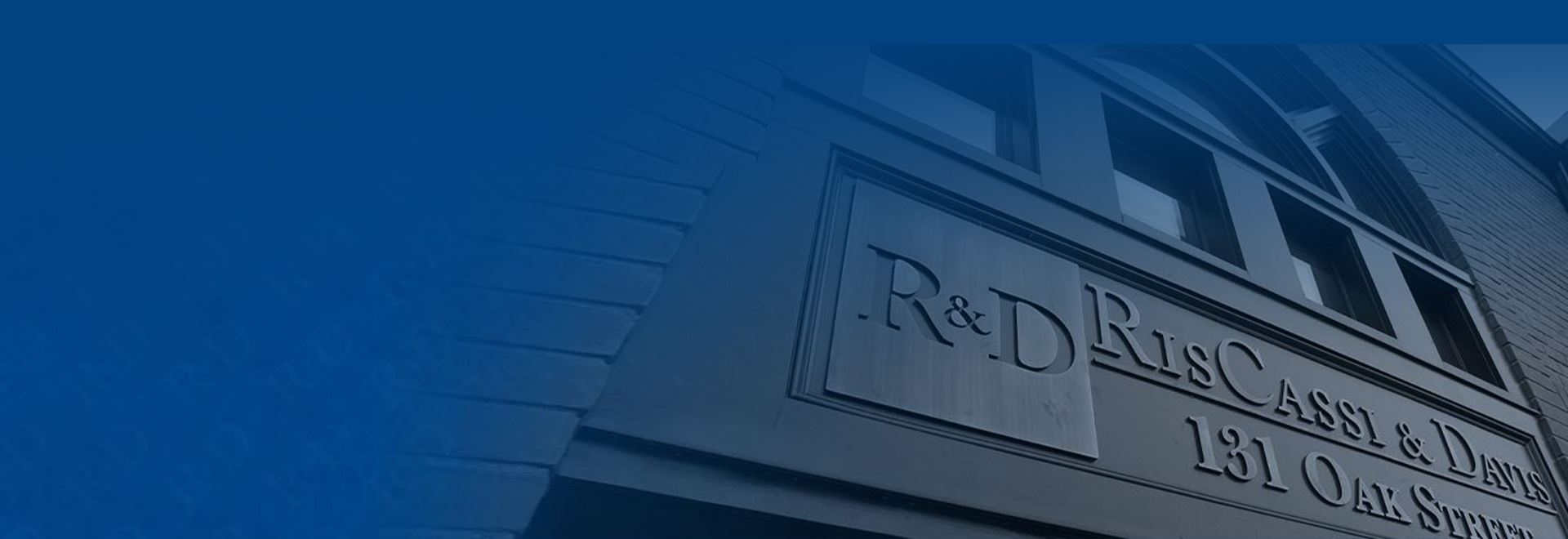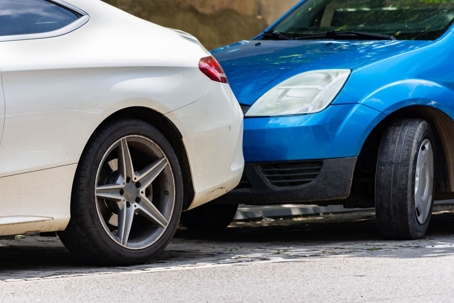Rear-end collisions are the most common type of car accident, accounting for nearly 30% of all car accidents, according to a National Highway Traffic Safety Administration (NHTSA) report. Rear-end collisions can occur in a variety of settings and scenarios. You may be sitting at a red traffic light, waiting to make a turn, or crawling along in stop-and-go traffic when your vehicle is struck from behind.
At RisCassi & Davis, P.C., we understand that being in a car accident can often be a traumatic and stressful experience. If this is your first car accident, as is the case with many of our clients, you may experience feelings of uncertainty, anger, and even fear.
This guide is meant to alleviate some of those feelings of stress and uncertainty by covering some of the basics regarding rear-end collisions, along with a few tips and reminders about what to do if you ever find yourself as the victim of a rear-end collision.
Who is Liable in Rear-End Car Accidents?
Generally speaking, the driver of a vehicle who strikes the vehicle in front of them will be deemed at fault for the accident and liable for any resulting damages. Most rear-end collisions occur when the lead vehicle is stopped or moving at a slower rate of speed than the vehicle approaching from the rear. Some of the most common causes of rear-end collisions are:
- Tailgating, which means that a driver is following the car directly in front of them too closely. This is the most common cause of rear-end collisions, as there is less time and distance to react if a driver is required to slow down or stop suddenly.
- Speeding, which can result in more significant rear-end collisions as the impact force is greater due to the following driver’s rate of speed and inability to react to sudden changes in traffic conditions.
- Hazardous Weather/Road Conditions, which can increase the time and distance necessary to stop a vehicle. Examples of such conditions include rain, snow, sleet, fog, and ice.
- Distracted Driving, which is when the driver of a vehicle is not paying proper attention to the road and traffic conditions by engaging in any activity unrelated to safely operating their vehicle. This can be anything from texting, talking on the phone, or eating/drinking while driving.
- Impaired Driving, which is when the driver of a vehicle is under the influence of alcohol, illicit drugs, or any other intoxicating substance. Driving while over-tired may also be considered driving while impaired.
- Failing to Maintain Your Vehicle, examples of such failures may include failing to maintain a vehicle with properly functioning brakes or adequately treaded tires.
Exceptions to the Rule - When the Driver in Front May be Responsible
While it is usually the case that the following driver will be found at fault for a rear-end collision, it is important to understand that there are certain situations in which the leading driver involved in the collision may be found at fault. In some cases, the leading vehicle in a rear-end collision may be liable if the driver stopped suddenly while traffic continued to flow normally. This often occurs in relation to road rage incidents when a leading driver feels that they are being tailgated.
Similarly, the driver of the leading vehicle can be found liable for a rear-end collision for failing to maintain working brake lights and turn signals. Working brake lights and turn signals are vital to alerting following vehicles that the car in front of them is slowing down or coming to stop.
Whether you are the leading or following vehicle in a rear-end collision, do not assume what your liability may or may not be. Our experienced attorneys at RisCassi & Davis, P.C. are here to help you understand your options under Connecticut law if you were injured in a rear-end collision.
What to Do After a Rear-End Auto Collision in Connecticut
If you are ever involved in a rear-end collision, there are a few important steps that you should take to ensure that accurate evidence relating to the accident is collected and documented.
- First and foremost, do your best to remain calm and assess whether you are injured and how serious any of your injuries may be, and if possible, do the same for any passengers that may be in your vehicle. If you believe that you or any of your passengers may require medical attention, call 911 immediately. In the case of serious injuries, remain in your vehicle as long as it is safe to do so and wait for first responders to arrive.
- Call the police so a police report is created. Even if a rear-end collision seems minor and there are no obvious injuries at the scene, it is important to document the details of the accident. A police report will serve as one of the key pieces of evidence in any future lawsuit relating to the accident. A police report will document:
- The time, date, and location of the collision
- Identifying information for all parties involved in the collision
- Road and weather conditions
- Statements from the drivers and any potential witnesses
- Insurance information
- Diagrams and photographs of the accident scene
If possible, you should take photographs of your vehicle that show any damage sustained during the collision. These photographs will preserve evidence of any damage to your vehicle once repairs have been made or the vehicle is no longer in your possession.
- Seek prompt medical treatment so that any injuries resulting from the collision are properly documented. Following a serious collision, the safest option is to be transported by ambulance to a hospital for evaluation and treatment. If you do not think you need an ambulance, you may also present to a hospital or urgent care facility on your own. You should remember that some accident-related injuries may not be apparent until days after the collision or may increase in severity in the days following the accident. Whenever you begin to experience symptoms from accident-related injuries, seek medical treatment as soon as possible. You cannot receive compensation for undocumented injuries, and the absence of prompt medical treatment can be potentially damaging to your claims.
- Hire a qualified and experienced lawyer who will conduct a thorough investigation, gather all relevant evidence, and guide you through each step of the legal process.
Financial Compensation for Your Injuries as a Result of a Rear-End Collision
Insurance companies will do everything in their power to limit your compensation following a rear-end collision. While you focus on recovering from your injuries, the lawyers at RisCassi & Davis, P.C. will deal with the insurance companies and defense lawyers. Our lawyers have decades of experience in handling rear-end collisions and will assist you in receiving fair and full compensation for your injuries.
Professional Legal Counsel from the Experienced Connecticut Car Accident Lawyers at RisCassi & Davis, P.C.
Consulting with an experienced Connecticut car accident lawyer can help you understand your legal remedies under Connecticut law and ensure that you are represented and supported by a team of knowledgeable lawyers and their attentive staff members.
The personal injury attorneys at RisCassi & Davis, P.C. will analyze your case and assist you in reaching a resolution that fairly compensates you for any injuries or losses from the collision. Our team is ready to work for you and with you.
Don't let the insurance companies lead you astray – contact RisCassi & Davis, P.C. if you were injured due to another's conduct or want guidance on processing these claims under Connecticut law. (860) 245-2412

